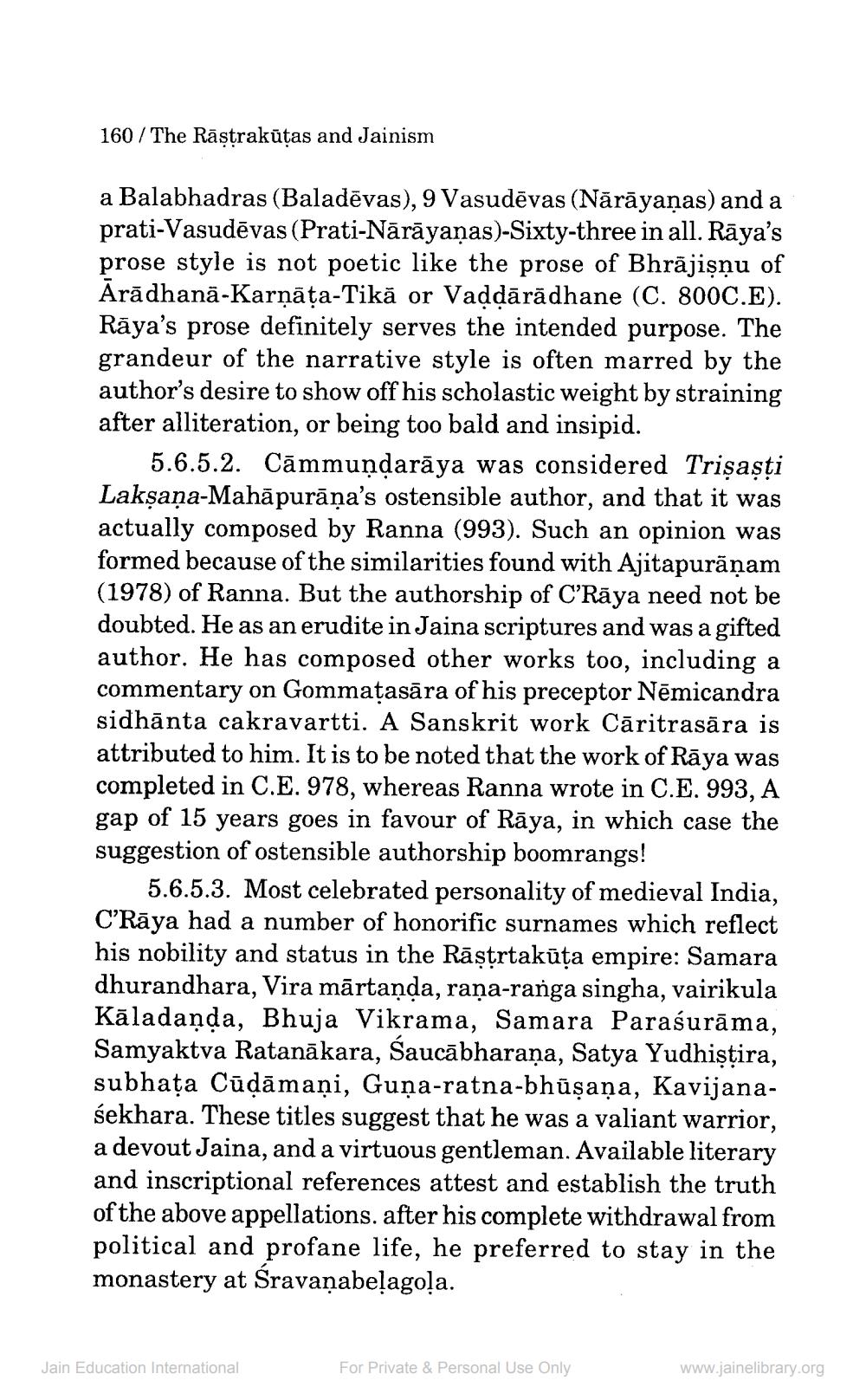________________
160 / The Rāstrakūtas and Jainism
a Balabhadras (Baladēvas), 9 Vasudēvas (Nārāyanas) and a prati-Vasudēvas (Prati-Nārāyanas)-Sixty-three in all. Rāya's prose style is not poetic like the prose of Bhrājișnu of Arādhanā-Karnāta-Tikā or Vaddārādhane (C. 800C.E). Rāya's prose definitely serves the intended purpose. The grandeur of the narrative style is often marred by the author's desire to show off his scholastic weight by straining after alliteration, or being too bald and insipid.
5.6.5.2. Cāmmundarāya was considered Trişaști Lakşaņa-Mahāpurāņa's ostensible author, and that it was actually composed by Ranna (993). Such an opinion was formed because of the similarities found with Ajitapurāņam (1978) of Ranna. But the authorship of C'Rāya need not be doubted. He as an erudite in Jaina scriptures and was a gifted author. He has composed other works too, including a commentary on Gommațasāra of his preceptor Nēmicandra sidhānta cakravartti. A Sanskrit work Cāritrasāra is attributed to him. It is to be noted that the work of Rāya was completed in C.E. 978, whereas Ranna wrote in C.E. 993, A gap of 15 years goes in favour of Rāya, in which case the suggestion of ostensible authorship boomrangs!
5.6.5.3. Most celebrated personality of medieval India, C'Rāya had a number of honorific surnames which reflect his nobility and status in the Rāstrtakūța empire: Samara dhurandhara, Vira mārtanda, raņa-ranga singha, vairikula Kāladanda, Bhuja Vikrama, Samara Parasurāma, Samyaktva Ratanākara, Saucābharaṇa, Satya Yudhiştira, subhața Cūdāmaņi, Guņa-ratna-bhūşaņa, Kavijanasekhara. These titles suggest that he was a valiant warrior, a devout Jaina, and a virtuous gentleman. Available literary and inscriptional references attest and establish the truth of the above appellations. after his complete withdrawal from political and profane life, he preferred to stay in the monastery at Sravanabeļago!a.
Jain Education International
For Private & Personal Use Only
www.jainelibrary.org




